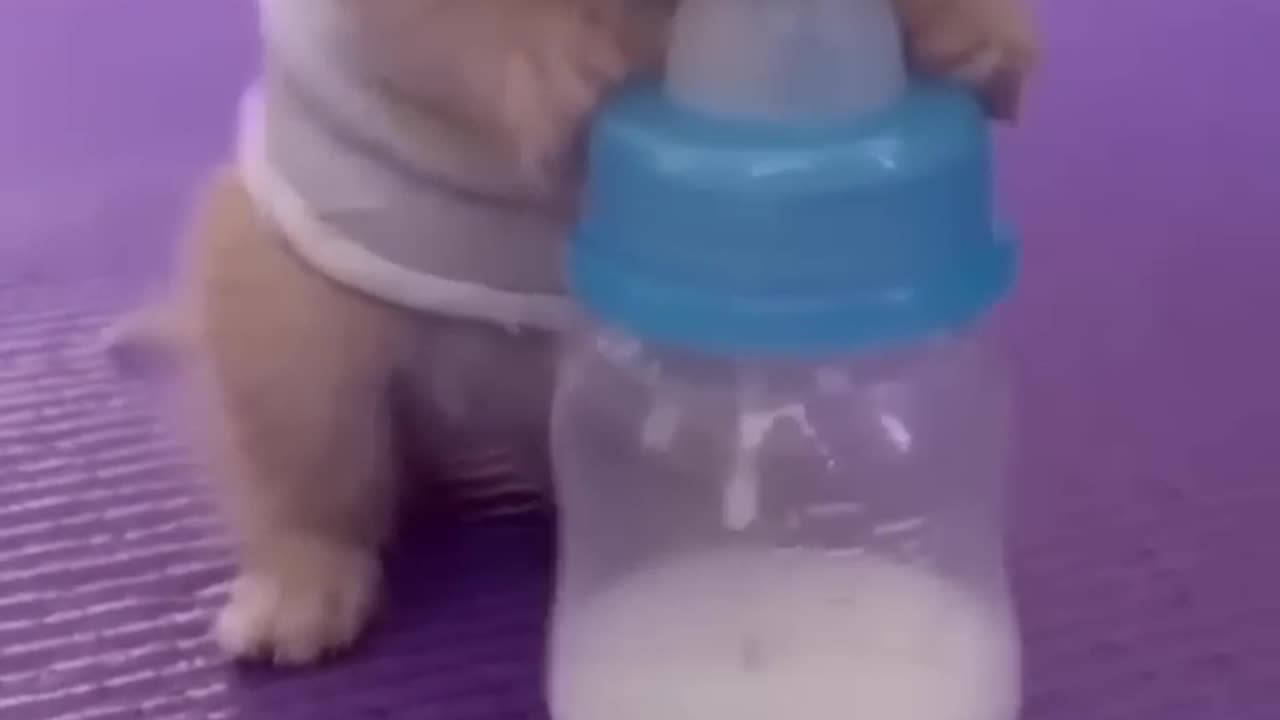Premium Only Content

baby cat #shorts
Mother's Milk: The best source of nutrition for newborn kittens is their mother's milk. It provides essential nutrients and antibodies that help protect the kittens from illnesses. If possible, kittens should stay with their mother for at least the first few weeks of life.
Kitten Milk Replacer: If the mother cat is unavailable or unable to nurse the kittens, a commercial kitten milk replacer can be used. These replacers are specially formulated to mimic the nutritional content of mother's milk. They are available in powder or liquid form and can be found at pet stores or veterinary clinics.
Feeding Schedule: Newborn kittens need to be fed every 2-3 hours around the clock. As they grow, the frequency of feedings can be gradually reduced.
Bottle Feeding: When feeding kittens with a milk replacer, you'll need to use a small bottle with a nipple designed for kittens. Hold the bottle at an angle to allow the kittens to suckle comfortably.
Warmth: Newborn kittens are unable to regulate their body temperature effectively. Ensure they are kept in a warm environment, ideally between 85-90°F (29-32°C).
Weaning: As kittens grow, they should be gradually introduced to solid food around 3-4 weeks of age. You can start by offering a mixture of kitten milk replacer and wet kitten food, gradually reducing the amount of milk replacer over time.
Consult a Veterinarian: It's crucial to consult a veterinarian when caring for newborn kittens, especially if you're dealing with orphaned kittens or if there are any health concerns. They can provide guidance on proper feeding, hygiene, and overall care.
-
 LIVE
LIVE
Barry Cunningham
4 hours agoBREAKING NEWS: PRESIDENT TRUMP GETS DEAL DONE WITH CHINA!
5,149 watching -
 LIVE
LIVE
Nerdrotic
2 hours agoExpeditions into the Ancient Jungle w/ Luke Caverns | Forbidden Frontier 101
443 watching -
 0:50
0:50
JULIE GREEN MINISTRIES
11 hours agoHappy Mother's Day
57.3K146 -
 16:11
16:11
CryptoWendyO
6 hours ago $6.91 earnedAMAZING REASON CRYPTO TURNED BULLISH! BITCOIN $110,000 SOON!
40.3K32 -
 DVR
DVR
Major League Fishing
4 days agoLIVE Tackle Warehouse Invitationals, Stop 4, Day 3
72.6K2 -
 6:15:56
6:15:56
Total Horse Channel
21 hours ago2025 Spring Showdown | May 11th | Barrel Racing Finals
62.9K2 -
 54:39
54:39
Athlete & Artist Show
10 hours ago $3.95 earnedThe Baddest Man In Hockey Hasn't Had A Goal Against In 6 MONTHS!
62.3K2 -
 7:25:12
7:25:12
Midnight In The Mountains
11 hours agoGaming w/ PER·SE·VER·ANCE 🕹 🔥🎮 WILDGATE Beta Madness! |
71.8K7 -
 24:11
24:11
After Skool
4 days agoThe Hidden Symbolic Meaning of Rebirth in Myths - Agrippa's Diary
73.7K35 -
 17:13
17:13
Mrgunsngear
1 day ago $11.84 earnedGirsan MC9 Disruptor X Handgun Review
119K7